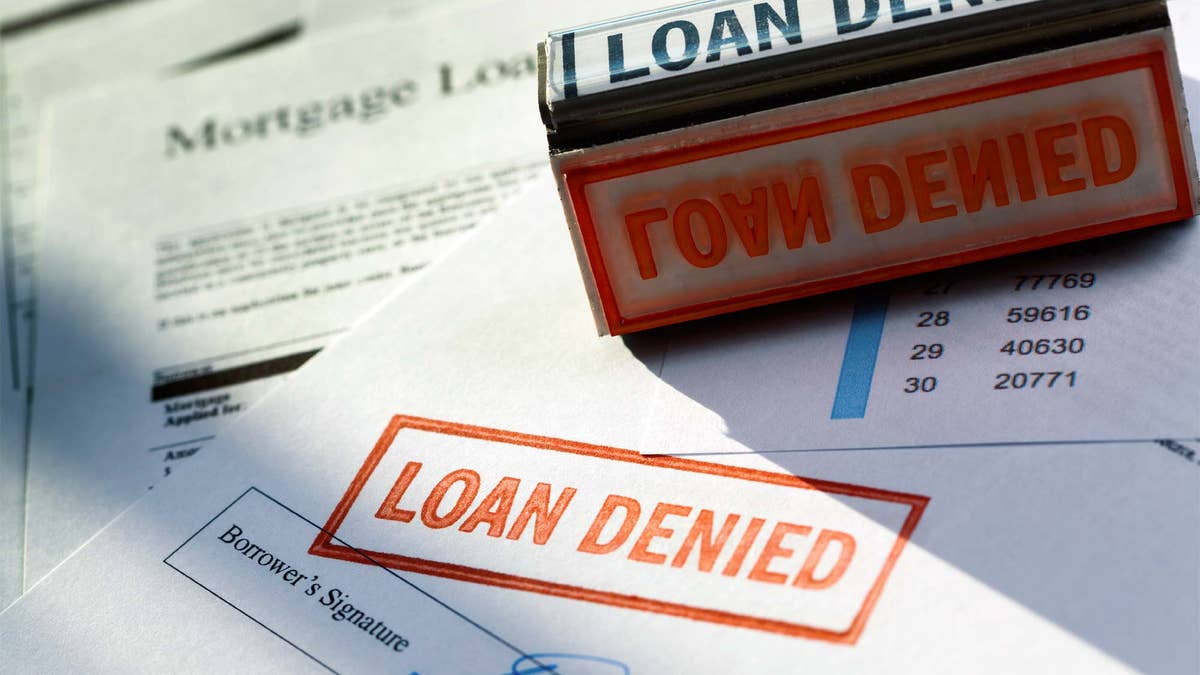
Loan denied
There's one thing we've hammered on about in the eternal quest for a smooth, trauma-free home search process: When you're applying for a mortgage, you need to shop till you drop. Compare rates, compare terms, and never go with the first loan you find.
OK, but there's a catch: There's a fine line between savvy shopping and overshopping. You see, every time you apply for pre-approval, your credit score gets pulled to determine your mortgage worthiness. And (paradoxically enough) every time that happens, you trigger a hard inquiry, which indicates that, as a potential big-loan holder, you'll become a somewhat riskier credit prospect. Got that? So every time you apply, your credit score takes a hit. If it happens over and over and over again, you could end up locked out of a new house.
So how do you strike the right balance to find the best loan for you without sacrificing your credit along the way? Well, it takes a little planning.
Pre-qualification vs. pre-approval
First, you need to understand that while they sound the same, pre-approval and pre-qualification are not interchangeable. And you don't usually need both.
But they could both ding your credit, says Jeremy David Schachter, mortgage adviser and branch manager at Pinnacle Capital Mortgage in Phoenix, AZ.
Pre-qualification: This is the initial starting point in the mortgage process, and it's usually quite simple. Pre-qualification is essentially a conversation with a lender -- done online or over the phone -- and can give you a broad overview of your financial standing.
Because you're typically providing info to the lender and not the other way around, a pre-qualification usually doesn't hold much weight when it comes time to actually buy. But some more formal pre-qualifications do pull your credit, causing your score to drop a few points temporarily.
Pre-approval: This process is much more involved and is the key step in getting a mortgage. You'll complete a mortgage application (and usually pay an application fee), and you'll give the lender a bunch of documents it can use to check your financial standing and your credit. A pre-approval is the No. 1 thing you need when you embark on the home-buying journey.
But you'll pay for it, in more ways than one.
"When your credit is checked, that's considered a 'hard pull,'" Schachter says. "And any time that occurs, it can trim your credit score."
How much is my credit score affected?
The cost to your credit can be as little as a few points or up to 14 or more, Schachter says, depending on your credit history and the number of other loans or credit accounts you've applied for in the past 90 days. (This is why your lender or Realtor will always tell you to hold off on any big purchases -- new car, new furniture, etc. -- until after you've bought your home.)
The repercussions also vary based on your other recent credit activity (did you recently miss a payment or max out a credit card?) as well as the credit bureau itself.
The three major credit bureaus (TransUnion, Equifax, and Experian) understand that borrowers comparison shop during the mortgage process, Schachter says. So depending on the credit bureau, multiple mortgage-related credit checks within a specific time period (typically 30 days) may -- but aren't always -- be lumped together and treated as if they are one single inquiry, dinging your credit score just once.
So how many pulls is too many? There's no magic number, Schachter says. Is three OK, but four too many? Unfortunately, it's hard to know for sure. Use your discretion and don't apply wantonly.
How long is my credit affected?
It's possible that several hard pulls could leave you with a lower credit score for as long as 90 days. But the exact time frame depends on the credit bureau and the details of a person's credit file, Schachter says.
The effects of a pre-qualification on your credit are a lot less harsh than a pre-approval. But you might want to cut right to the chase and go for a pre-approval if you plan on buying in the near future.
How to save your credit
Start by talking with several lenders (without pulling your credit) to make sure you're working with the right lender and comparing rates, Schachter suggests.
Then, if you decide to seek more than one pre-approval or pre-qualification, make sure that potential lenders pull your credit file within a few days -- not weeks or months -- of one another in order for the multiple inquiries to do the least amount of damage.
Just remember, the clock is ticking: Both pre-qualifications and pre-approvals have expiration dates -- most are usually valid for 60 to 90 days.
If you don't get cracking on your home search in that time, you'll have to start all over again. And that means more blows to your credit.